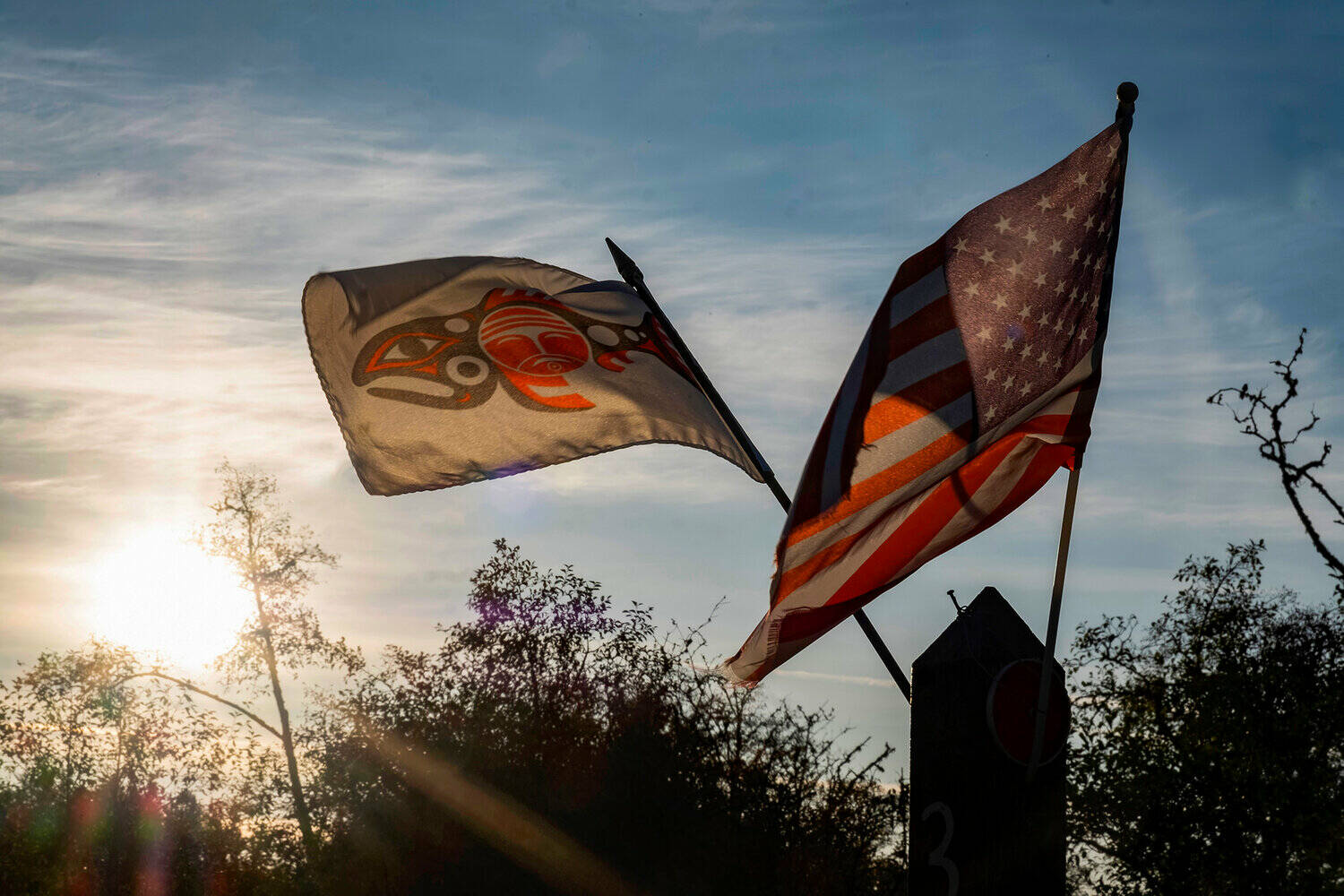In mid-March a Chinook Indian Nation social media post stated that U.S. Rep. Marie Gluesenkamp Perez, D-Skamania, had backed off of her promise to champion federal recognition for the tribe at the mouth of the Columbia River.
The Chinook Indian Nation comprises roughly 3,000 members who descend from five Chinookan-speaking tribes: west of Longview, the Clatsop and Cathlamet of present day Oregon and the lower Chinook, Wahkiakum and Willapa of present day Washington. In order to be a citizen of the Chinook Indian Nation, a person has to descend from those tribes.
Achieving sovereign status would benefit the Chinooks in many ways, including funding and access for their own health care and education service programs as well as the ability to buy land and start businesses. Along with improved economic opportunities, the nation would have better access to natural resources at the mouth of the Columbia River, which they call home.
This is an ongoing fight for the Chinooks — over 120 years. The Chinooks are without a reservation but have been able to call their ancestral lands home.
“Our community has heard too many broken promises from representatives of the U.S. Government,” the Chinook Indian Nation stated in the social media post. “We’re saddened to share that Marie Gluesenkamp Perez has backed off her promise to champion Chinook recognition in favor of corporate interests. Her proposed bill amendments would take all vital resource rights away from the Chinook people.”
The post was made prior to Gluesenkamp Perez’s town hall at the Raymond Theatre on Friday, March 14. The Chinook Indian Tribe Office in Bay Center is just a half hour away, so the post also called on members of the Chinook community to attend and voice their concerns.
In the town hall, Gluesenkamp Perez immediately nodded her head when asked what the plan is to introduce a bill for Chinook tribal recognition.
“So I’ve been really adamant that like this is the morally correct thing,” she said in response. “The Chinook Nation had it. They had it. And they lost it because of a very bad system.”
The Chinooks believed their fight was over when, in 2001, the Chinook Indian Nation obtained federal recognition from the U.S. government. That victory was short-lived as their sovereign status was revoked just 18 months later by the George W. Bush administration. On July 5, 2002, a news release by the Bureau of Indian Affairs stated that Assistant Secretary of the Interior for Indian Affairs Neal A. McCaleb signed a reconsidered final determination declining the Chinook Indian Nation’s acknowledgment. The reconsideration found that the January 2001 determination generated from improper interpretation of a 1925 claims act, a 1912 claims act and a 1911 allotment act.
“It is also the case that we need 218 votes in the House,” Gluesenkamp Perez said at the town hall. “And we need 51 votes in the Senate. And so having the morally correct answer is a big part of that question. But it’s also true that we have to have the biggest team of advocates possible to do that.”
Gluesenkamp Perez told town hall attendees that she has some concerns.
“Things I’ve read in the media might be misrepresenting a couple of really important questions,” she said. “One of which is, how many tribes are supporting that? What level of tribal support is there to build that threshold? It is really important that we have the biggest team possible.”
She added that a “messaging bill” reduces credibility.
She said that the legislation needs to be supported by neighboring tribes and answer key questions of where the reservation would be and what the fishing rights would be.
“And having a clear answer to those questions is a really important part of having a bill with legs,” Gluesenkamp Perez said, “having a bill that can do the right things. And so I absolutely support recognition of the Chinook Nation, and the question following that is, how do we get there? What do we do to build that?”
Gluesenkamp Perez said, as a member of the House Democrats who are in the minority, she has been working with Chinook Indian Nation Chairman Tony Johnson and his members in order to introduce the strongest version of a bill that has the greatest chances of passing the House and Senate and being signed into law.
“Federal recognition would grant the tribe a government-to-government relationship with the United States and begin to right the wrongs the Chinook people have endured for generations, from the original seizure of their ancestral lands, to the forced attendance of Chinook children at Indian boarding schools, to the subsequent decades of discrimination,” she stated. “Granting federal recognition to the Chinook Indian Nation is an essential step toward addressing these historical injustices.”


